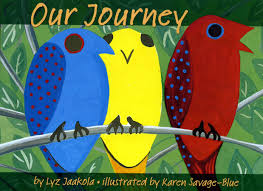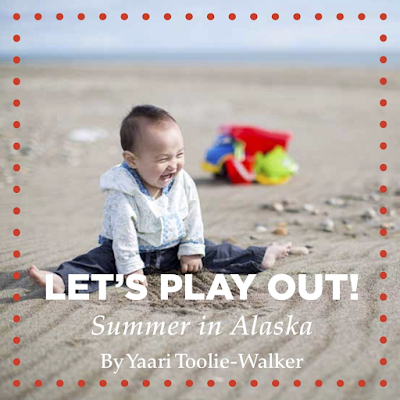Today, I'm adding a Top Board Books list to that section. It isn't a Top Ten list because some of the books are from the same author and titling it "Top Ten" doesn't work. Each of the books are written or illustrated by a Native author or illustrator, and in some way, they are "tribally specific."
Baby Learns about Colors, by Beverly Blacksheep. Published in 2003 by Salina, it is one of a series of eight bilingual books with Dine (Navajo) and English text that feature a baby girl, her growth, and things she learns in a tribally specific context. Other books in the series are Baby Learns about Animals, Baby Learns about Seasons, Baby Learns about Senses, Baby Learns bout Time, Baby Learns about Weather, Baby Learns to Count, and Baby's First Laugh. For more information, see my essay: Beverly Blacksheep's Board Books.
I See Me, by Margaret Manuel. Published in 2010 by Theytus, the book can be personalized. By that, I mean that each page has a line of English text about the photo, and, a blank line for parents/teachers to write a caption in their own language. If you wish, the publisher provides captions in a specific language. This book is being given to families through the American Indian/Alaska Native Reach Out and Read program.
Learn the Alphabet with Northwest Coast Art. Published in 2010 by Garfinkle Publications, this board book is one of several that are illustrated by First Nations artists. The back cover provides information about the item and artist whose work is featured on each page. The other book from Garfinkle that I know and recommend is Learn to Count with Northwest Coast Native Art. They also sell puppets, plush animals, stickers, and stamps. Though I don't have any of the items, I think they can be used to enhance the study of the art in the books.
Welcome Song for Baby: A lullaby for newborns, by Richard Van Camp. Published in 2007 by Orca, it was given to every baby born in British Columbia in 2008. Richard is Dogrib (the Dibrib people are in Canada). The book was very well received and reviewed as a book primarily for parents.
That's it... for now. Fourteen books. If you know of others, please let me know! A hearty thanks to Jean Mendoza for working with me on this list, and for being my dear friend.
___________________
Update, March 6, 2012
__________
Update, November 18, 2014
Add Julie Flett's exquisite We All Count. It has words in Cree and English.
_________
Update, November 4, 2016
Delighted to add these!
Good Morning World, by Paul Windsor (see review):
Debbie Slier's Loving Me (see review):
Celebrate My Hopi Corn and Celebrate My Hopi Toys by Anita Poleahla and Emmett Navakuku (see review):
My Heart Fills With Happiness by Monique Gray Smith, illustrated by Julie Flett (see review):
And, Richard Van Camp and Julie Flett's We Sang You Home (see review):



















I recently read 50 Miles from tomorrow by William Iggiagruk Hensley, Alaska Native elder who helped with land claims and circumpolar diplomacy. It was on a young adult booklist and is certainly an appropriate history of a people who are claiming their subsistence inheritance and how their leader grew up. This includes a two page Inupaq vocabulary at the beginning of the book. JH
ReplyDeleteI wish I had had this list when I was creating bibliographies for El dia de los ninos/El dia de los libros: Building a Culture of Literacy in your Community Through Dia (ALA, 2011). I looked high and low for bilingual titles and would have loved to know about Baby Learns about Colors and the other books. I will locate copies and try to use them in workshops. Thanks!
ReplyDeleteI came across another Debbie Slier board book: Loving Me, also by Star Bright Books (ISBN 978-1-59572-334-5). From the description: "...babies and toddlers will discover the importance of familiy relationships in these charming photographs of Native American families."
ReplyDelete